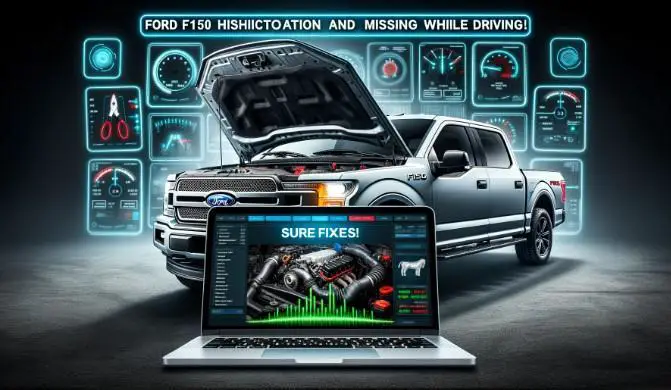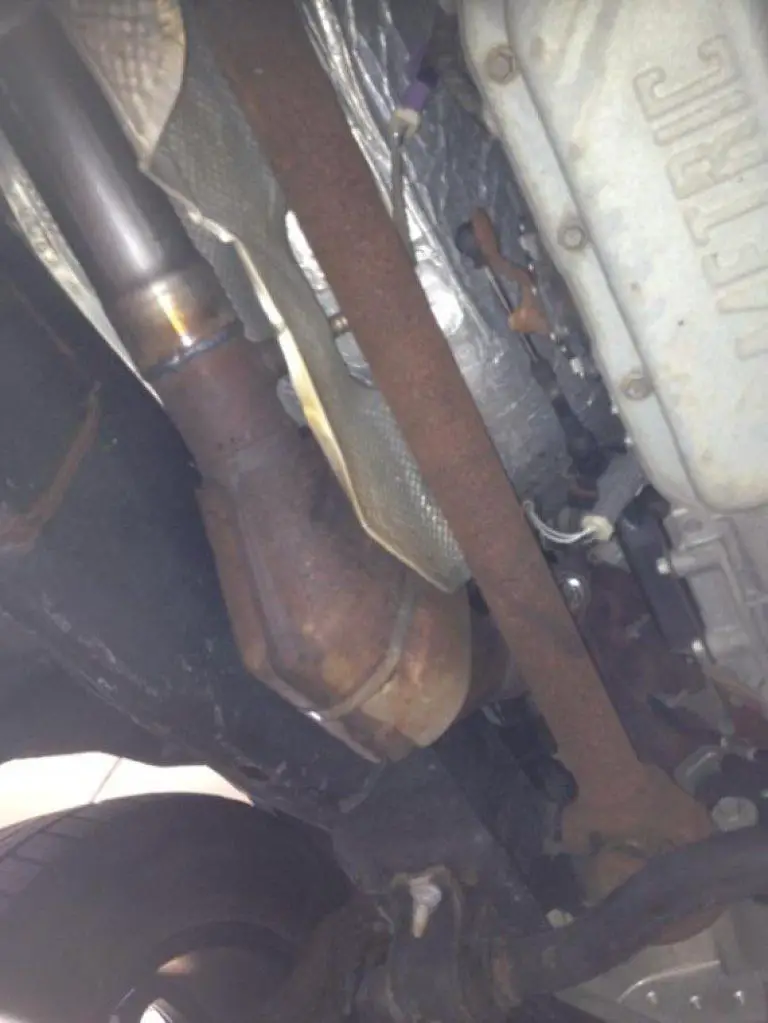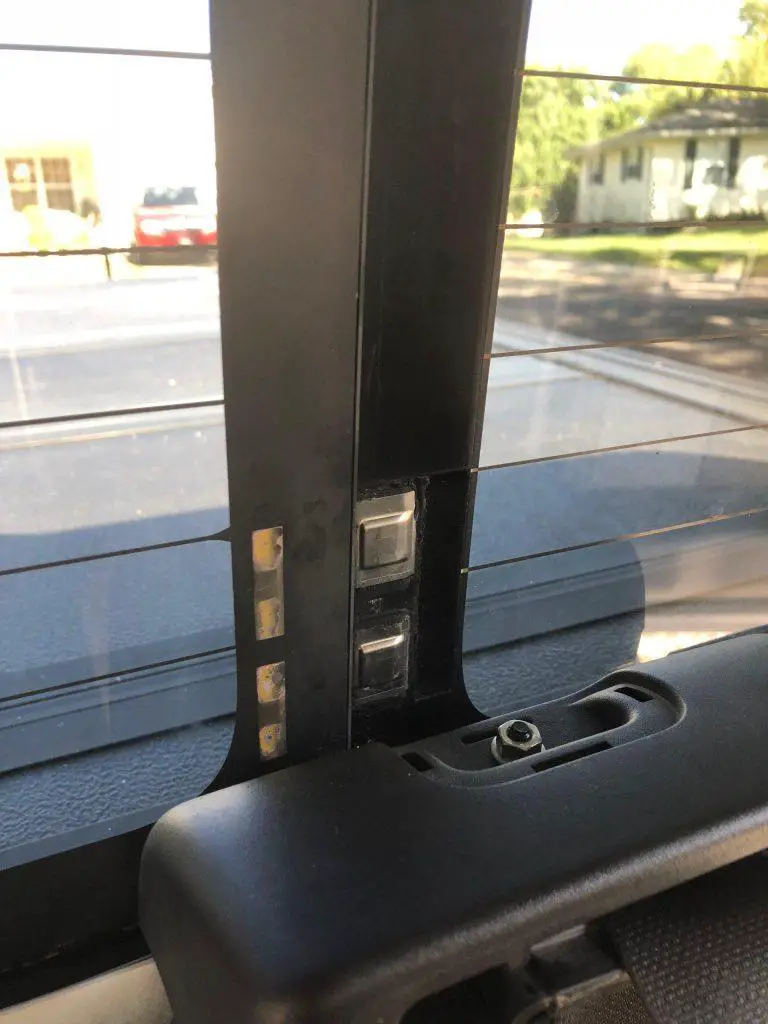Ford F150 Hesitation And Missing While Driving: Sure Fixes!
Last Updated on by Tarek
A Ford F150 can hesitate while driving for a number of reasons, including:
- Dirty fuel injectors.
- Faulty transmission.
- Low engine oil.
- Faulty gear ratio.
- Cracks or rips in the engine.
- Fuel pump.
- Coils developing shorted turns.
- Tranny “hunting” for the right gear.
In the nifty guide ahead, we’ll delve into the mystifying world of:
- Unraveling the 8 Culprits: That might be sneakily causing your F-150 to hesitate during acceleration.
- DIY Fixes: Don’t break the bank! We’re venturing into some hands-on solutions to bid farewell to that pesky hesitation.
- Drive Smooth with 8 Proven Tips: Because prevention is always better (and often easier) than cure, right?
So, buckle up as we navigate through this journey of keeping your Ford F-150 running as smoothly as it was meant to be!
8 Most Common Causes of Ford F-150 Engine Hesitation During Acceleration
1. Dirty fuel injectors:
Fuel injectors are responsible for delivering the correct amount of fuel to the engine cylinders. When they become dirty, they can clog and restrict fuel flow, causing hesitation and other problems.
2. Faulty transmission:
A faulty transmission can cause hesitation, especially when shifting gears. This is because the transmission is responsible for transferring power from the engine to the wheels. If the transmission is not working properly, it can cause the engine to hesitate as it tries to shift gears.
3. Low engine oil:
Low engine oil can cause the engine to overheat, which can lead to hesitation and other problems. This is because the oil helps to lubricate and cool the engine components.
4. Faulty gear ratio:
A faulty gear ratio can cause the engine to work harder than it needs to, which can lead to hesitation and loss of power. This is because the gear ratio determines how much torque is transferred from the engine to the wheels.
5. Cracks or rips in the engine:
Cracks or rips in the engine can cause hesitation and other problems by allowing air to leak into the engine. This can disrupt the air-fuel mixture and cause the engine to run too lean or too rich.
6. Fuel pump:
A weak or failing fuel pump can cause hesitation and other problems by restricting fuel flow to the engine. This is because the fuel pump is responsible for delivering fuel from the gas tank to the engine.
7. Coils developing shorted turns:
Coils that are developing shorted turns can cause misfires, which can lead to hesitation and loss of power. This is because the coils are responsible for igniting the air-fuel mixture in the engine cylinders.
8. Tranny “hunting” for the right gear:
A transmission that is “hunting” for the right gear can cause hesitation. This is because the transmission is constantly shifting gears in an attempt to find the right one for the current driving conditions.
Other causes of hesitation include:
Slow electrical throttle response:
A slow electrical throttle response can cause hesitation. This is because the throttle controls the amount of air that enters the engine. If the throttle response is slow, it can cause the engine to hesitate as it tries to respond to the driver’s input.
Engine temperature sensor:
A faulty engine temperature sensor can cause hesitation and other problems by sending incorrect information to the computer. This can cause the computer to adjust the air-fuel mixture incorrectly, leading to hesitation.
Mass Air Flow (MAF) sensor:
A dirty or faulty MAF sensor can cause hesitation and other problems by sending incorrect information to the computer. This can cause the computer to adjust the air-fuel mixture incorrectly, leading to hesitation.
Dirty air filter:
A dirty air filter can restrict airflow to the engine, causing hesitation and loss of power. This is because the air filter helps to remove dirt and debris from the air that enters the engine.
How to Fix Ford F150 Engine Hesitation During Acceleration
Engine hesitation can be a source of frustration for many Ford F150 owners. While it may seem like a minor inconvenience, consistent hesitation can lead to larger mechanical issues down the road. This guide is tailored to help you address and fix engine hesitation during acceleration in your Ford F150, ensuring a smooth and powerful ride.
You can check out the video:
1. Inspect and Replace the Air Filter
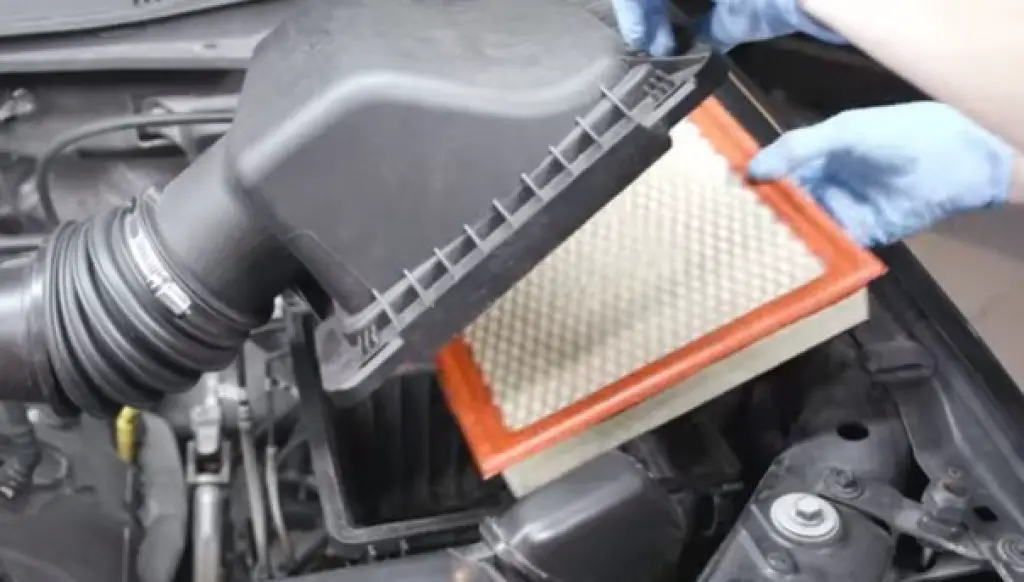
- Locate the Air Filter: Open the hood and find the air filter box.
- Unfasten the Box: Open the air filter box by releasing the clips and/or unscrewing any screws.
- Replace: Lift out the old air filter, insert the new one (ensure it’s oriented correctly), and re-secure the box.
2. Clean the Mass Airflow Sensor (MAF)
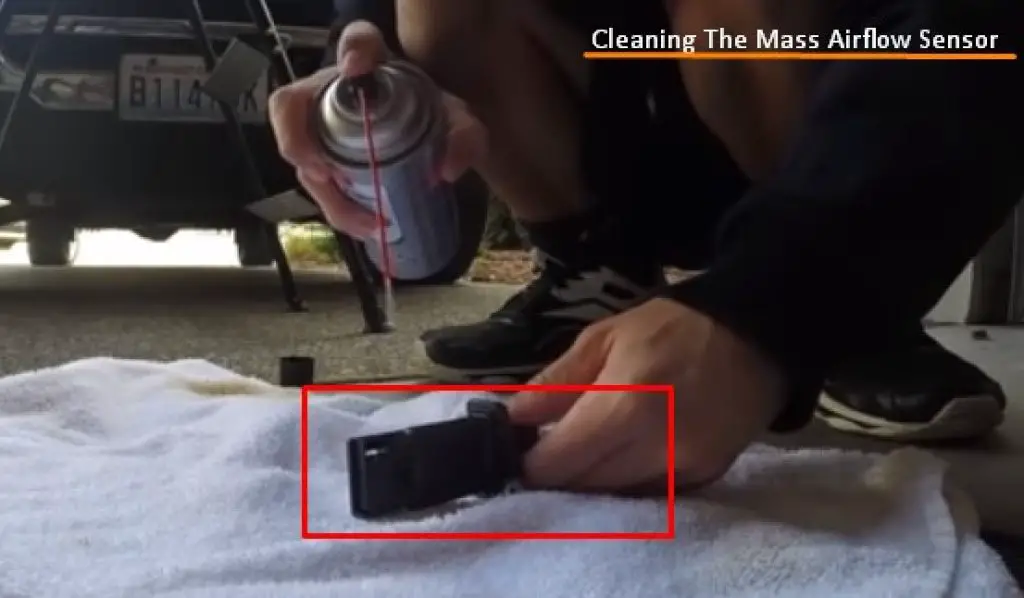
- Locate the MAF Sensor: Typically found between the air filter and throttle body.
- Remove the Sensor: Use a screwdriver to remove the screws and gently pull the sensor from the housing.
- Clean: Spray the sensor wire with an MAF cleaner. Allow it to air-dry thoroughly before reinstalling.
3. Examine the Spark Plugs and Wires
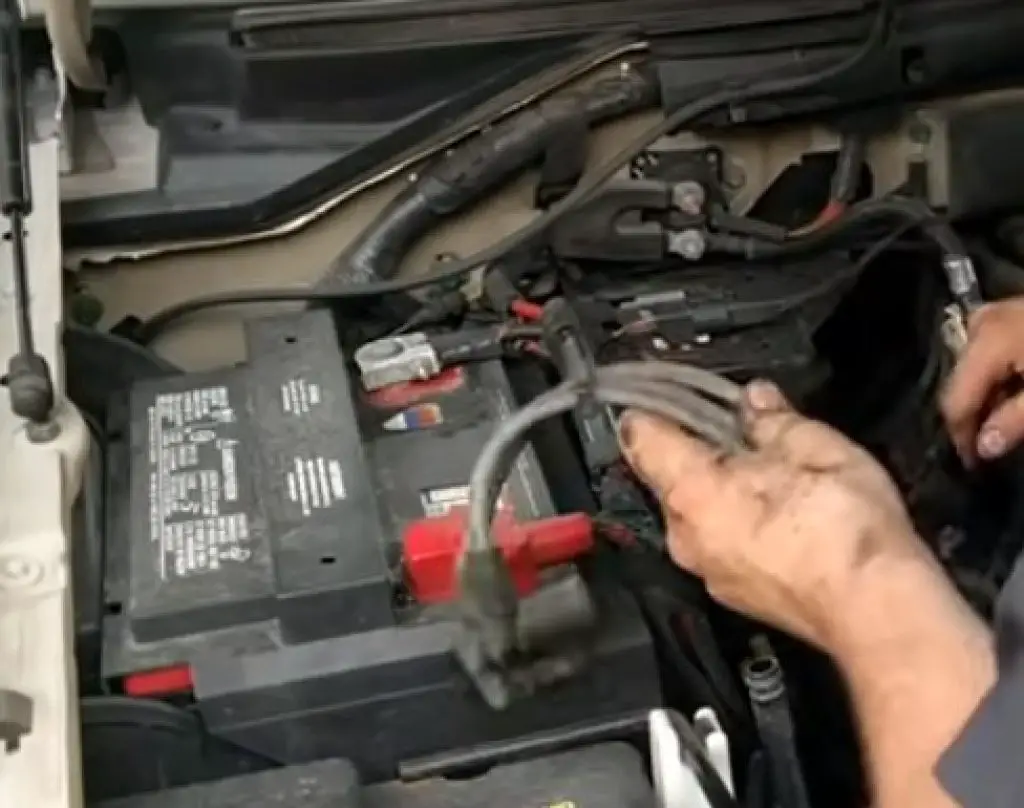
- Locate and Remove: Find the spark plugs, pull the plug wire, and use a spark plug socket to remove the plug.
- Inspect: Check the plug for wear or build-up and check the gap with a gapping tool.
- Install: Insert the new spark plug, hand-tighten it, and then use a torque wrench to tighten it to the specified torque. Replace the wire.
4. Clean the Throttle Body
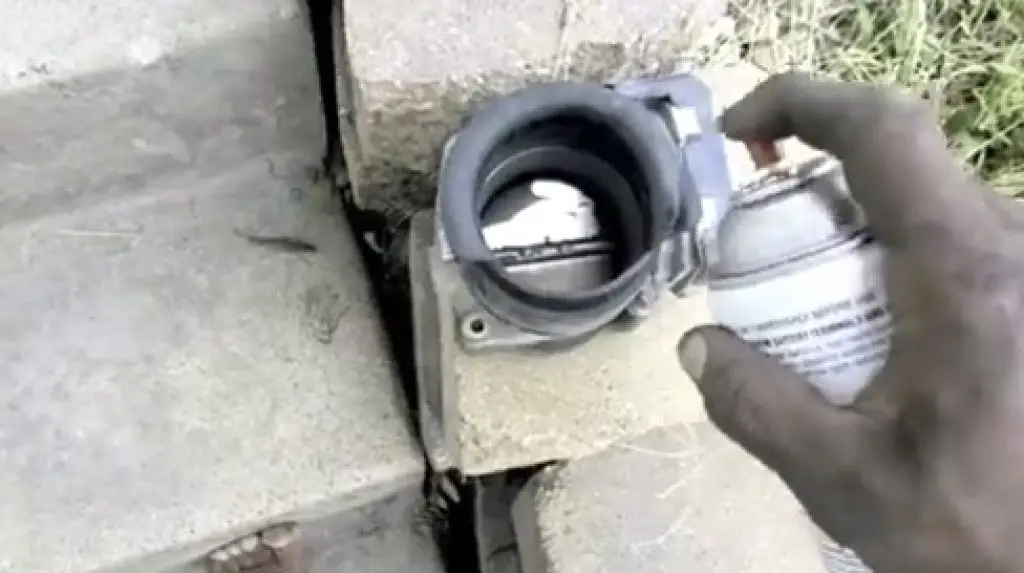
- Locate: Find the throttle body by following the air intake system.
- Remove: Disconnect the air intake hose and remove any electrical connections.
- Clean: Spray throttle body cleaner onto a rag and clean inside the throttle body, scrubbing any stubborn deposits with a toothbrush.
5. Evaluate the Fuel Injectors
- Locate: Find the fuel injectors, usually mounted along the fuel rail.
- Remove: Detach the electrical connections and fuel lines, and unbolt the injectors from the rail.
- Clean: Utilize a fuel injector cleaner kit to flush the injectors, or soak them in cleaner and use a wire brush for any stubborn residues.
- Reinstall: Return the injectors to the rail, resecure all connections, and reattach the fuel lines.
6. Inspect the Fuel Filter
- Locate the Fuel Filter: Typically found along the fuel line under the vehicle or near the fuel tank.
- Remove: Use line wrenches to disconnect the fuel lines and remove the filter from its bracket.
- Install: Place the new filter in the bracket and reconnect the fuel lines, ensuring tight and secure connections.
7. Assess the Transmission
- Check Transmission Fluid: Ensure it is at the correct level and not burnt. Replace if necessary by draining old fluid and adding new fluid via the transmission dipstick tube.
- Inspect for Leaks: Check transmission seals and gaskets and apply a transmission stop-leak additive if minor leaks are detected.
- Manual Shifting Test: Manually shift through all gears during driving to detect any hesitation or slipping.
8. Scan for Trouble Codes
- Connect an OBD-II Scanner: Plug the scanner into the OBD-II port, usually located under the dashboard.
- Interpret Codes: Refer to the vehicle’s service manual or online resources to understand the codes.
- Address the Issue: Perform necessary fixes related to the trouble codes, which could range from replacing sensors to adjusting components.
Can Hesitation and Missing While Driving Cause Bad Gas Mileage in my Ecoboost?
Can hesitation and missing while driving affect ecoboost fuel efficiency? Yes, they can. Hesitation and missing usually indicate a problem in the engine’s combustion process, which can lead to poor gas mileage in your ecoboost vehicle. To address this issue, consider these ecoboost fuel efficiency troubleshooting tips: check for spark plug issues, inspect the fuel injectors, ensure proper air intake, and maintain regular maintenance schedules. By resolving these issues, you can optimize your ecoboost’s fuel efficiency.
8 Proven Tips for Preventing Hesitation and Missing in the Ford F-150: while driving
1. Regular Oil Changes
Key Actions for Effective Oil Management
| Action | Detail |
|---|---|
| Frequency | Adhere to recommended intervals: typically every 3,000 to 5,000 miles. |
| Oil Type | Use the recommended oil grade as per the vehicle manual. |
| Filter Replacement | Always substitute the oil filter during an oil change. |
2. Maintain the Fuel System
Strategies for Optimal Fuel System Health
| Action | Detail |
|---|---|
| Quality Fuel | Prefer reputable stations and occasionally use higher-octane fuel. |
| Fuel Additives | Utilize fuel system cleaners every few thousand miles. |
| Fuel Filter | Replace according to the manufacturer’s schedule. |
3. Spark Plugs and Wires Maintenance
Ensuring Spark Plugs and Wires’ Longevity and Efficiency
| Action | Detail |
|---|---|
| Regular Checks | Inspect every 30,000 miles for visible wear or damage. |
| Replacement | Change at intervals specified in the vehicle manual. |
4. Air Filter Check and Replacement
Maintaining Clean Airflow into the engine
| Action | Detail |
|---|---|
| Inspect | Examine the air filter at each oil change. |
| Replace | Substitute if visibly dirty or as per the scheduled maintenance. |
5. Transmission Care
Ensuring Smooth and Responsive Transmission Function
| Action | Detail |
|---|---|
| Fluid Check | Monitor transmission fluid levels and quality regularly. |
| Fluid Change | Replace fluid as per the manufacturer’s guidelines. |
| Smooth Shifting | Avoid harsh transitions between gears and ensure complete stops before shifting. |
6. Throttle Body and MAF Sensor Cleaning
Maintaining Optimal Air-to-Fuel Ratio and Performance
| Action | Detail |
|---|---|
| Routine Cleaning | Periodically clean the throttle body and MAF sensor. |
| Check Connections | Verify that electrical connections to the MAF sensor are secure. |
7. Cooling System Maintenance
Preventing Overheating and Ensuring Efficient Running
| Action | Detail |
|---|---|
| Coolant Levels | Maintain appropriate coolant levels and consider additives. |
| Radiator Check | Inspect for leaks and ensure the cap is secure. |
| Thermostat | Ensure proper function to manage engine temperature. |
8. Battery Maintenance
Ensuring Consistent Power Supply and Starting
| Action | Detail |
|---|---|
| Voltage Check | Ensure approximately 12.6V output when the engine is off. |
| Clean Terminals | Remove corrosion from terminals using baking soda and a brush. |
| Secure Connections | Ensure cables are tightly secured to the terminals. |
9. Drive Belts and Chains
Ensuring Mechanical Components Operate Smoothly
| Action | Detail |
|---|---|
| Visual Inspection | Check for visible wear, cracks, or looseness. |
| Maintain Tension | Ensure appropriate tension as per manual specifications. |
| Replace | Change at specified intervals to avoid breakdowns. |
10. Tire Maintenance
Ensuring Safe and Efficient Road Interaction
| Action | Detail |
|---|---|
| Pressure Maintenance | Regularly check and maintain recommended tire pressure. |
| Rotation | Rotate tires periodically to ensure even wear. |
| Alignment | Ensure wheels are aligned to prevent uneven wear and ensure optimal handling. |
11. Brake System Maintenance
Ensuring Reliable and Safe Stopping Power
| Action | Detail |
|---|---|
| Brake Pads | Check for wear and replace if below recommended thickness. |
| Brake Fluid | Check for wear and replace if below the recommended thickness. |
| Brake Discs | Check for wear or warping and replace if necessary. |
12. Utilize Fuel with Consistent Ethanol Levels
Maintaining Engine Performance with Consistent Fuel Quality
| Action | Detail |
|---|---|
| Consistency | Stick to a fuel brand with consistent ethanol levels. |
| Ethanol Awareness | Be mindful of potential effects of higher ethanol levels on the engine. |
13. Exhaust System Check
Ensuring Efficient Emission Management
| Action | Detail |
|---|---|
| Regular Inspections | Check the exhaust system for leaks or damage periodically. |
| Mount Checks | Ensure mounts are secure and do not allow movement. |
| Catalytic Converter | Ensure it is functioning properly to manage emissions effectively. |
What are the signs of engine hesitation in the Ford F-150?
Answer: Signs might include a lack of responsiveness when accelerating, sudden jerks, intermittent power, or a feeling of stalling.
Can driving with a hesitating engine damage my Ford F-150?
Answer: Yes, continuous driving with engine hesitation can potentially lead to further damage, impacting components like the transmission or exhaust system.
How often should I check the spark plugs to avoid hesitation in my Ford F-150?
Answer: It’s wise to inspect spark plugs approximately every 30,000 miles or as per the guidelines in your vehicle’s manual.
Conclusion
And there you have it, folks! Your journey with your Ford F-150 doesn’t have to be a series of stumbles and hesitations. By embracing the insights and tips we’ve navigated through today, you’re not just a driver but a savior, ready to tackle those sneaky engine hesitations in their tracks! Your F-150 deserves the love and with a dash of preventative care, here’s to ensure that your drives remain smooth, and your adventures, endless. Keep cruising confidently in your Ford F-150!

